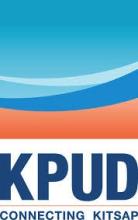Don't Forget the Financing! - Community Broadband Bits Podcast 307

When municipalities and other local governments are planning for publicly owned Internet infrastructure, they must coordinate many moving pieces to get the project going and to keep it on a successful track. In this interview, Christopher and Tom Coverick, Managing Director at KeyBanc Capital Markets, discuss one of the most important components of community network planning: finance.
Christopher and Tom met up at the May 2018 Broadband Communities Summit in Austin, Texas.
In addition to some of the types of bonding and other mechanisms communities use to fund their projects, Christopher and Tom discuss the politics and ancillary issues that affect local leaders’ decisions to take the step to finance for a project. Risk is a consideration and it affects the cost of financing. Tom advocates that financing should be part of the equation early in the planning process and he explains why his experience has led him to this conclusion. Christopher and Tom also talk about some creative funding techniques that local communities have used to make borrowing more palatable and suitable for their unique situations.
This show is 25 minutes long and can be played on this page or via Apple Podcasts or the tool of your choice using this feed.
Transcript below.
We want your feedback and suggestions for the show-please e-mail us or leave a comment below.
Listen to other episodes here or view all episodes in our index. See other podcasts from the Institute for Local Self-Reliance here.
Thanks to Arne Huseby for the music. The song is Warm Duck Shuffle and is licensed under a Creative Commons Attribution (3.0) license.


